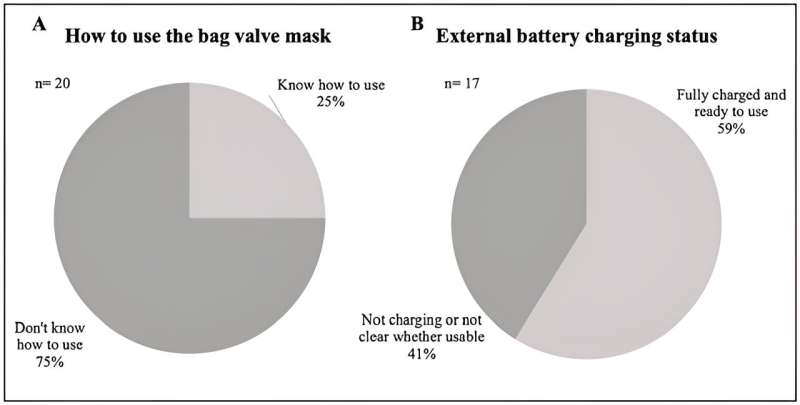This article has been reviewed according to Science X's editorial process and policies. Editors have highlighted the following attributes while ensuring the content's credibility:
fact-checked
proofread
Researchers: Advances must be made in disaster preparedness for ALS patients

Amyotrophic lateral sclerosis (ALS) is an intractable disease of the motor neurons for which there is currently no radical cure. ALS causes reductions in patient ability to walk, any many patients required invasive or non-invasive ventilator assistance. Thus, when a disaster causes a loss of transportation or power outages, patients with ALS face serious challenges.
Patients with advanced ALS require electrical equipment to maintain life, and are often difficult to transport to evacuation centers. As such, preparedness for disasters is an especially important issue for patients with ALS. However, few reports have investigated disaster preparedness in this cohort.
Professor Osamu Kano, M.D., Ph.D. and his colleagues investigated the disaster preparedness of patients with ALS and their caregivers in Japan. They performed a cross-sectional questionnaire survey, in which >70% of the respondents answered that they were not prepared for disasters.
Further, 86% of the respondents had no plans for alternative means of communication if the phone lines were down. Including ventilator users, <30% of the respondents had secured human resources for transportation. Moreover, 25% of the respondents did not stockpile food and beverages, and 12% of the ventilator users had no local government-recommended ventilator preparation equipment, such as bag-valve mask or external battery.
Even among the responders who had this equipment, 75% did not know how to use the bag-valve mask, and approximately 40% had insufficiently charged external batteries.
"Academic societies and local governments have been responding to disaster preparedness for patients with intractable diseases. We have taken better measures than before, but it is still not enough. We believe that our paper has the potential to provoke and advance further discussion on disaster preparedness for patients with ALS," said Prof. Kano, senior author of the study published in the Journal of Clinical Neuroscience.
More information: Takehisa Hirayama et al, The necessity to improve disaster preparedness among patients with amyotrophic lateral sclerosis and their families, Journal of Clinical Neuroscience (2023). DOI: 10.1016/j.jocn.2023.08.002




















